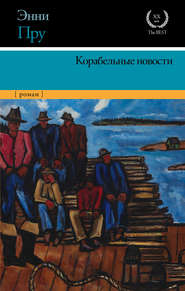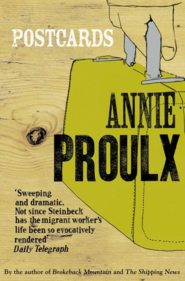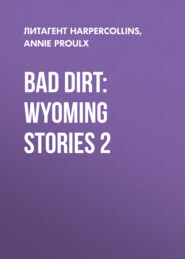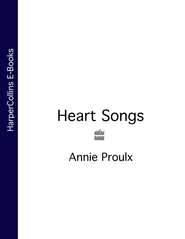По всем вопросам обращайтесь на: info@litportal.ru
(©) 2003-2024.
✖
That Old Ace in the Hole
Автор
Год написания книги
2018
Настройки чтения
Размер шрифта
Высота строк
Поля
“Come on, Hugh. It’s for the public good. Everbody comes to that barbecue,” pleaded Harry Howdiboy, Sheriff Dough’s idea of a garden slug reincarnated as a human. Well, he’d sprinkle salt on him.
“It was not for the public good. It was for personal gain and advantage and it is illegal sideways, up and down and through the middle. What you done is mortally wrong and it will stay done until the trumpet blows. Advise you to set and keep still. I’m in a stinkin bad mood and the least little move or talk might make me think you are resistin arrest and tryin to escape. Time I got done with you they mightn’t recognize anything except the frickin handcuffs.”
In December of that year he received the Texas Peace Prize awarded annually at the Hotel Stockholm in Dallas. On the flight from Amarillo to Dallas he had had a window seat and spent the time counting the rivets in the wing. In addition to the rivets there were five small L-shapes as though someone had traced the corner of a toolbox with white paint. Then he noticed many droplets of white on the wing – clusters as though someone had struck a loaded paintbrush a smart slap. There were too many to count. During the ceremony he had counted the fringed threads on the cloth covering the award table. The large photograph of himself holding the trophy and the fifty-dollar prize check hung in his office next to the portrait of his grandmother in her Roman gladiator headgear.
7 THE RURAL COMPENDIUM (#ulink_a37cdbc1-04a4-5fd5-a603-f1e257eb834b)
Bob stayed three days in the Hoss Barn reading the local classifieds, returning to the Mexicali Rose to eat chicken-fried steak (the never-changing special), asking waitresses and store clerks about places to rent, driving around reading bumper stickers:
MY SON IS AN HONOR INMATE AT MCALESTER
HONK IF YOU LOVE BRATWURST
WHAT A FRIEND WE HAVE IN JESUS
7-LETTER WORD FOR STINK – HOGFARM
He counted churches: the Primitive Baptist Church, the New Light Baptist Church, the Sunrise Baptist Church, the Sweet Loam Baptist Church, the First Baptist Church, the Bible Baptist Church, the Apostolic Faith Church, the Freewill Baptist Assembly, the Tabernacle Baptist Church, the Fellowship Baptist Church, the True Christian Church, the Straight Christian Church, the First Church of God, the People’s Church of the Plains, the Gospel of Grace Church, the Jehovah’s Witness Kingdom Hall, the Pentecostal Holiness Church, the Bethlehem Lutheran Missouri Synod Church, the First Assembly of God Church, the First United Methodist Church, the Church of the Brethren, the Seventh-Day Adventist Church and, on the very edge of town near some run-down hovels, the Immaculate Conception Caprock Catholic Church, a tiny building hardly bigger than the smokehouse from which it was converted. There seemed to be a church for every five residents. But of apartments and houses there was nothing for rent. Everyone had a home and was in it. The manager of the Hoss Barn, Gerald Popcorn, perhaps not an ex-con after all, thought Bob Dollar, offered him a residency rate of ten dollars a night but told him he would have to move to a smaller room. A tent seemed a better choice. And outside the wind never stopped blowing.
At night he read from Lieutenant Abert’s Expedition. There was an illustration of James William Abert at the front, but in it he seemed middle-aged. It was difficult to guess how he had looked at twenty-five: thin, a longish, straight nose, limp brown hair. Perhaps even then he was growing the mustache and beard of the sketch, even then his hair already receding. Bob imagined his friends called him “Jim,” but he thought of him as Lieutenant Abert.
The account began with a description of Bent’s Fort. Bob Dollar had gone to Bent’s Fort himself on the eighth-grade class trip. He knew the fort was a reconstruction and the guides, blacksmiths and mountain men lounging around were only actors, but the feeling was remarkably real that he was on the border of Mexico marked by the Arkansas River in the mid-nineteenth century, the world of traders and trappers and Cheyenne Indians, of Mexicans and Texians, of buffalo hides and French voyageurs. Now, looking at Lieutenant Abert’s watercolor of the fort, done from the far side of the Arkansas and showing an overly large flag flying from the fort and, in the foreground, a conical tent, perhaps a teepee, with two white men standing near, one wearing a striped shirt and, his arms folded, the other in buckskin pants and with a rifle over his left shoulder, he felt he was there again. The fort looked the same as it had on the eighth-grade trip. During the class visit Bob had been pleased to see screaming peacocks strutting along the fort’s parapet and wandering through the courtyard. Now he read that in Lieutenant Abert’s day there had been numerous cages at the fort containing birds of the region – the magpie, the mockingbird, the bald eagle. The parapet of the outer wall was planted to bristling cacti, which, when Abert saw them in the summer of 1845, were in waxy red-and-cream-colored bloom.
He delighted, with the lieutenant, in the groups of Cheyenne who came to the fort and did a scalp dance and posed for him while he painted their portraits. He enjoyed the lieutenant’s detailed description of Cheyenne hairdressing, the men’s hair long enough to trail on the ground but their eyebrows and beards plucked out with tweezers. He thought the lieutenant’s attraction to the women’s center partings and neat braids that hung to their waists a little more than that of a disinterested observer. Clearly he fancied them and Bob wondered if he had slept with any of them. He supposed so. And when the lieutenant went with “Mr. Charbonard” to visit Old Bark, an important Cheyenne (with a beautiful daughter), Bob thrilled at the contact with the Lewis and Clark expedition of 1804, for “Mr. Charbonard” was Jean-Baptiste Charbonneau, son of Sacajawea and Toussaint Charbonneau, the baby whom Sacajawea had carried on her back all the way to the Great Water of the West. What the lieutenant had written in 1845 Bob held in his hand, feeling the long-dead voice speaking to him.
At the end of the week, sitting in the Mexicali Rose over a cup of weak coffee, the cook stuck his head out of the square hole where the chicken-fried platters appeared.
“Hey, Bob Dollar, want your eggs bright-eyed or dirty on both sides? And are you still lookin for a place to rent?”
“Dirty. And I sure am.”
“Well, I heard it there’s a lady down in Woolybucket got somethin. If you don’t mind stayin down there. Pretty dead town. I got the number for you.” He thrust a torn edge of newspaper through the hole. “And if you got smarts you’d take somethin to eat. There’s no place to eat in Woolybucket. There was a place about fifteen years ago, run by a old lady, well, I say old lady, but you couldn’t tell if she was a woman or a man.”
“Thanks. And I guess I’ll get an order of fried chicken to go.”
He looked on his map. Woolybucket was the next town past Cowboy Rose, down Route 444, which ran from Tyrone, Oklahoma, to Pampa, Texas. It was on the north side of the Canadian River. He called the number and a woman’s thin yet rough voice told him that the place was an old log bunkhouse on the Busted Star Ranch, without electricity or running water, but sound and sturdy and only fifty dollars a month. No drinkers, no smokers, no women, no drugs. He said he would like to look at it, thinking that maybe it was the break he had been waiting for.
The wind had died down, leaving an emptied, medium-blue sky. On the outskirts of Woolybucket a sign proclaimed THIS IS THE BEST PLACE IN THE WORLD. A smaller, almost completely faded sign beyond it was illegible except for the sinister words “… out of town before sunset.” Woolybucket was the seat of Woolybucket County. Seven gravel and caliche roads, formed in the 1890s by cattle driven from outlying ranches to the railhead, converged from every compass point. No traffic light on earth could order the complex nine-way intersection which operated first come, first served. The railroad bisected the main street. There was a white water tower on which some wag had painted the legend H
O. Beyond it were five or six grain elevators with a dozen pickups parked in front. Bob guessed that was the major hangout place for farmers.
The center of Woolybucket featured a small tan lawn like a grass tutu around a tan brick courthouse, a tan sidewalk leading up to a portico where a sign with an arrow directed visitors to the sheriff’s office. Along the street opposite the courthouse he saw the traditional lineup of small-town businesses, a card and gift shop, an empty storefront, the Old Dog Café, a law office with a sign reading F. B. WEICKS ATTY in flaking gold letters, the Lone Star pool hall, Bludgett’s Pharmacy, the Speedwell Market, the Woolybucket Bank and the glass-fronted newspaper office, The Banner, which he soon learned the less sanguine locals called The Bummer. Through its plate-glass windows the Old Dog looked to be crowded with men wearing cowboy hats, and the street itself, especially in front of Clip’s News & Video where young men and teenaged girls leaned against the walls of stores, against the municipal trash barrel, the posts supporting the arcade roof, draped themselves across the fenders of pickups. The town seemed vital and full of life.
The newer shops that proclaimed Woolybucket a community of modernity flanked the courthouse on the side streets. Here was an Episcopal church shaped like a wedge of cake, the Motel Caribe with a bathtub-size pool in the center of the parking lot, a Thai-Mexican restaurant, Woolybucket Cellular and a fitness center named Gym Bob’s. He bought six doughnuts at Cousin Dougie’s Donut Shop. A placard in the window announced YES WE HAVE LATE, which he took to be the regional spelling of “latte.”
The post office was two streets back, a false-front building shaded by a small Cottonwood tree. On slat-backed benches sat four elderly men, leathery, wrinkled, skinny-necked and thin, all with their right legs crossed over the left. Their pants legs rode high exposing four white shanks in oblique alignment. They all smoked cigarettes showing the same length of ash, they turned their heads in unison to watch the traffic pass. Bob Dollar was pleased to see so many oldsters and imagined them all to be proprietors of big spreads.
Another elderly man standing outside the post office, wearing chinks, cowboy hat and tooled leather cuffs, gave him directions to the Busted Star, said it was owned by LaVon Grace Fronk, told him to stay on the asphalt because they’d just bush-hogged the damn roadsides, now bristling with brush stobs sharp as punji sticks. He mounted a grey horse, saluted Bob Dollar and rode off. The horse limped.
“Come on in,” yodeled the woman, beckoning him into the gloom of the house. Her voice was grainy and oleaginous at the same time, like coarse-ground peanut butter. “Will you all take a glass of water or some Pepsi?” LaVon Fronk, small and thin as a fifth-grader, was a middle-aged ranch widow who resembled one of the minor Roman emperors with her intense, nervous face, small mouth barely wider than her nose, the eyes close-set under a ledgey brow, marbled hair of faded red and white.
“I’d love some water,” he said, his throat parched with dust. She made a little production of getting the glass, rinsing it, putting in ice cubes, taking a pitcher of iced water from the refrigerator, slicing a lemon and perching it on the rim of the glass. The house seemed very hot to him.
“There! There’s nothing like cold water, is there? I was a Harshberger from Miami” – she pronounced it “Miama” – “Miami, Texas, of course. Not the Florida place. I married Jase Fronk in 1951 and he died – well, that’s enough of that.”
“Woolybucket is kind of a strange name,” said Bob. “Is it called after somebody?”
“Named after the woolybucket tree. I guess there used a be a lot a them grew here. Birds like a woolybucket. The leaves in the spring, why they are all fuzzy underneath before they roll out – that’s the wooly buckets. And Cowboy Rose is named after a flar. The wine cup. That’s the other name for the cowboy rose. You couldn’t have a town called ‘Wine Cup.’ Not in teetotal Woolybucket County.”
While he drank his water Bob noticed flamboyant knickknackery everywhere. LaVon said the kitchen was French provincial, though to him it seemed Texas provincial, a clean white linoleum floor, a white Formica table with chrome legs and matching chairs, a calendar on the wall next to a portrait of Jesus constructed of macaroni and seeds, and against the walls aged and noisy white appliances. The dishtowels, stamped Bonjour at the bottom, showed the Eiffel Tower. On the counter stood ceramic jars labeled CAFÉ, SUCRE, FARINE. A poster reproduction of Brassaï’s Steps of Montmartre hung over a wine rack, which contained not wine but bottles of whiskey; a good sign, thought Bob Dollar. She showed him dozens of items she had purchased through mail-order catalogs – a leather hot water bottle cover, a Moroccan oil lamp. Over the cat’s basket – she had a heavy paint tomcat with a bad leg, only one ear and half a tail, the victim of an encounter with the lawn mower – a blue enamel sign declared CHAT LUNATIQUE. Chat mort would have been more accurate, for the somnolent beast lay as one dead hour after hour, rousing only when the refrigerator door opened or when the gangly neighbor boy started the lawn mower.
When he finished his water she said, “Well, let’s go have a look at that bunkhouse.”
“This’s it,” she said, driving him through a bumpy pasture, over a sullen creek toward a motte of cottonwood trees. There was a second fence behind the barbwire made up of old tires on end, packed three deep in overlapping rows. Under the cottonwoods stood a small log building with a porch. A rope ran around the circumference of the porch floor and La Von explained this was to keep snakes out of the cabin. Inside were four empty bunks, on each a thin mattress folded in half, a stack of blankets, four wooden chairs at a square table. There was a tiny stove with a blackened teakettle on it and against the wall a wood box full of kindling and sticks.
“Spartan,” she said. “There’s no electric. Supply your own sheets and towels. You’ll have to haul water. Get it down the house in the kitchen.”
“I’ll take it,” he said without seriously considering a daily drive across a cow pasture, the labor of lugging water, no telephone, for already he was taking pleasure in the subtle beauty of the panhandle, noting the groves and thickets along watercourses, huge coils of grapevine weaving the trees into a coarse fabric. He thought the bold diagonal of caprock rim that divided the high plains from the southern plains, the red canyons of the Palo Duro striking and exotic.
He unloaded his suitcase, his new briefcase (new only to him, for it had come from Uncle Tam’s shop) with its freight of Global Pork Rind flyers and papers, a pair of pinch-toe cowboy boots shining with polish, and the box of fried chicken he had brought from Perryton. It took only a few minutes to unpack. He went outside and walked around the bunkhouse, starting up a plump, chickenlike bird in the tangled vines along the creek. The sound of running water was pleasant though it made him want to piss. Against the back of the bunkhouse leaned four large logs, two of them partially shaped and carved into figures – a woman’s head with flowing hair, and a roughed-out human figure that vaguely resembled Lenin. Perhaps some ranch hand had fancied himself a sculptor.
In the deepening afternoon he sat on the porch with a warm bottle of Pearl and told himself to buy a cooler and ice in Woolybucket the next day. There were several pieces of farm machinery in a large field to the west, ungrazed for some years and grown up with big bluestem and weeds. He counted five rusted wheat combines, three pickup trucks, four old tractors, various harrows and rakes, all sinking into the earth. There was a dark shape in the high grass, but what it was he could not make out – perhaps an old gas pump. In the dulling light he noticed a low rise to the south, too low to be called a hill even in this flat country, little more than a swelling as though the earth had inhaled and held the breath. But by panhandle standards it was a wave of earth that deserved the name “hill.” Beyond the rise was a great indigo cloud spread open like a pair of dark wings, monstrous and smothering, shot through with ribbands of lightning, and in the distance the stuttering flash of strobe lights at the ends of the irrigation pivot water arms. The dusk sifted down like molecules of pulverized grey silk.
He left the fried chicken skin and bones on the porch floor. Sometime in the night he woke to hoarse barking cries outside the door repeated with monotonous regularity. But even as he struggled to come fully awake the barks began to recede and, peering out the window into faint starlight, all he could see was a small shadow gliding into the black weeds, whether fox or coyote he didn’t know. Toward morning rain tapped the roof.
He went over to the ranch house in the morning, drew the water, then sat and had a cup of coffee with La Von, who had the regional taste for very weak, pale brown coffee. She told him she was compiling a county history which she called The Woolybucket Rural Compendium, hundreds of memoirs and photographs from families of the region.
“Mr. Dollar, I have been workin at it for thirteen years.”
Her mailboxes, she said, were packed full with genealogical reminiscence every noon when Doll McJunkin delivered. Elderly visitors came up the drive with their boxes of photographs and diaries, faded envelopes. The papers and photographs filled two entire rooms downstairs. As they sat at her worktable with their coffee cups LaVon gestured at the shelves of boxes.
“I suppose I’ll never get it done,” she said with something like pride. “I suppose I’ll die and my son will throw everthing out – essentially the entire history of Woolybucket County and everbody in it.”
“Couldn’t you do it in several volumes?” asked Bob. “Like, get the first volume published that deals with the earliest days and then, later, you know, follow up with the later stuff?”
“No, I could not. My material is filed by family, not by year. It’s alphabetical, not chronological. I sometimes think that was a mistake. But we live with our mistakes.”
“Then couldn’t you do like A to L? I mean, anything, just so you make room. And don’t the people want their letters and pictures back?”
“They may,” she said carelessly. “And they’ll get them back when I’m done. There’s too much new stuff that comes in that has a be added to the families at the beginning a the alphabet.”
“But – ”
“Do not worry about it, Mr. Dollar,” said LaVon. “I’m sure you have your own work that interests you. Every pie got its own piecrust.”
“Well, yeah.” He did not see the trap.
“And just what is your work? What brings you down here in the panhandle, which has so few voluntary visitors?”











